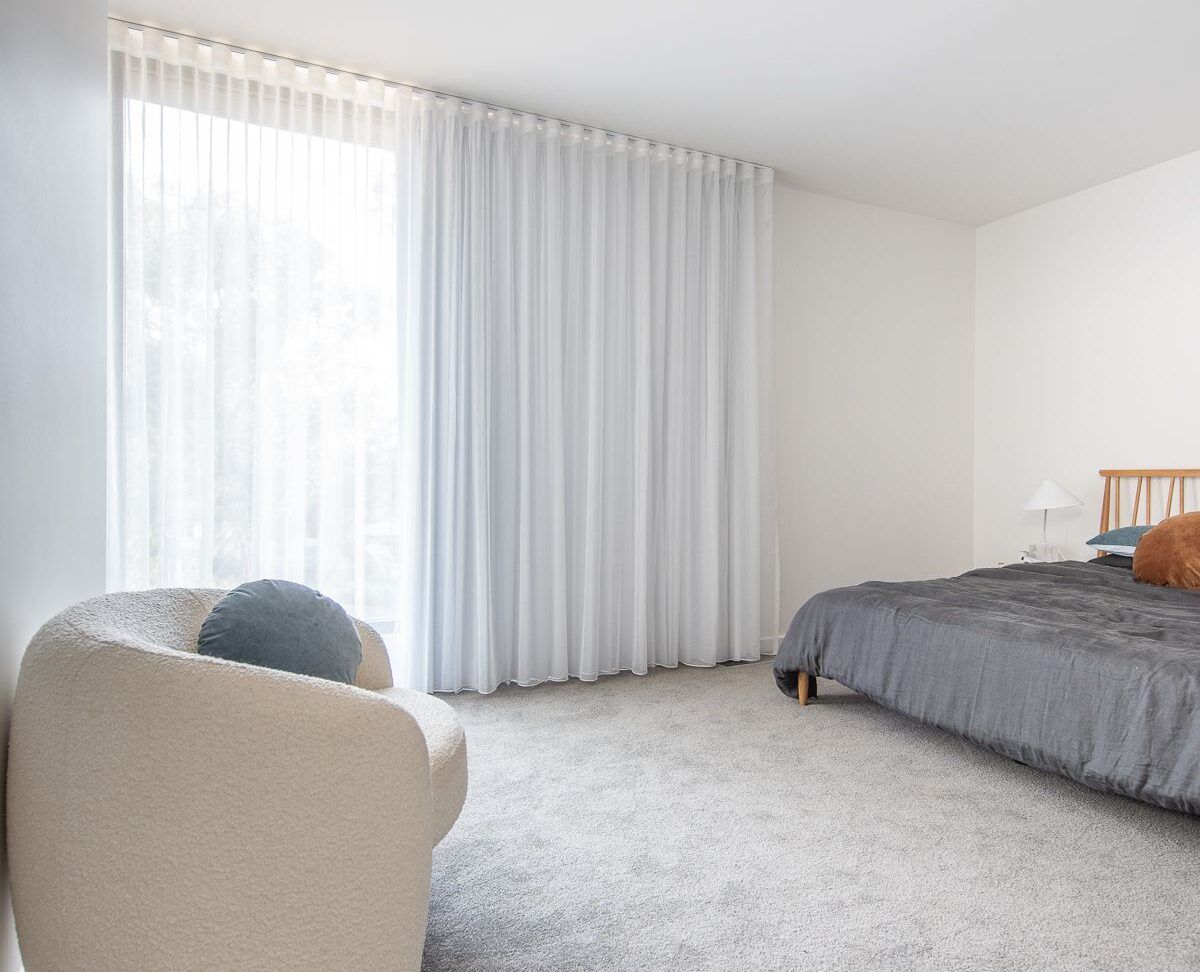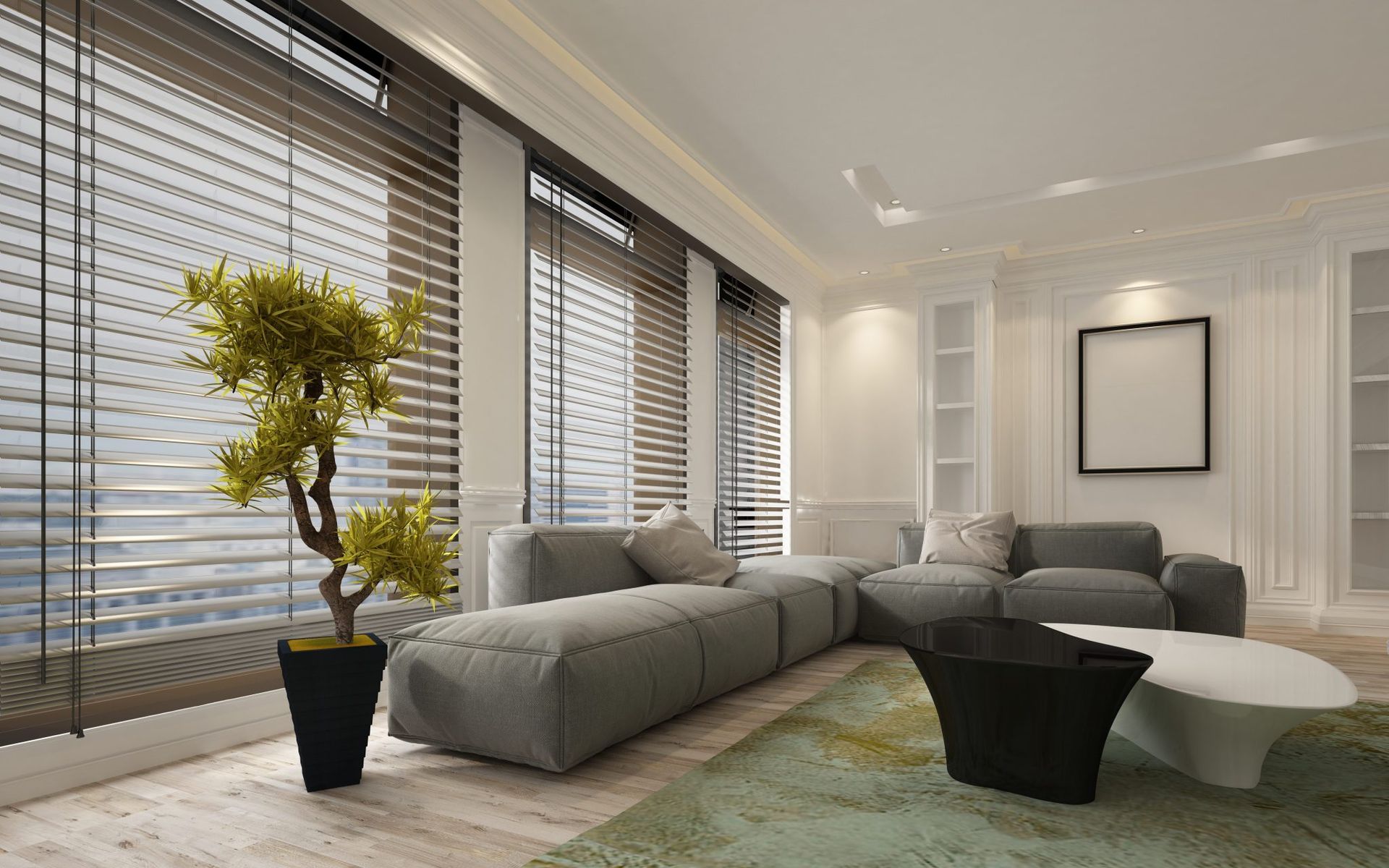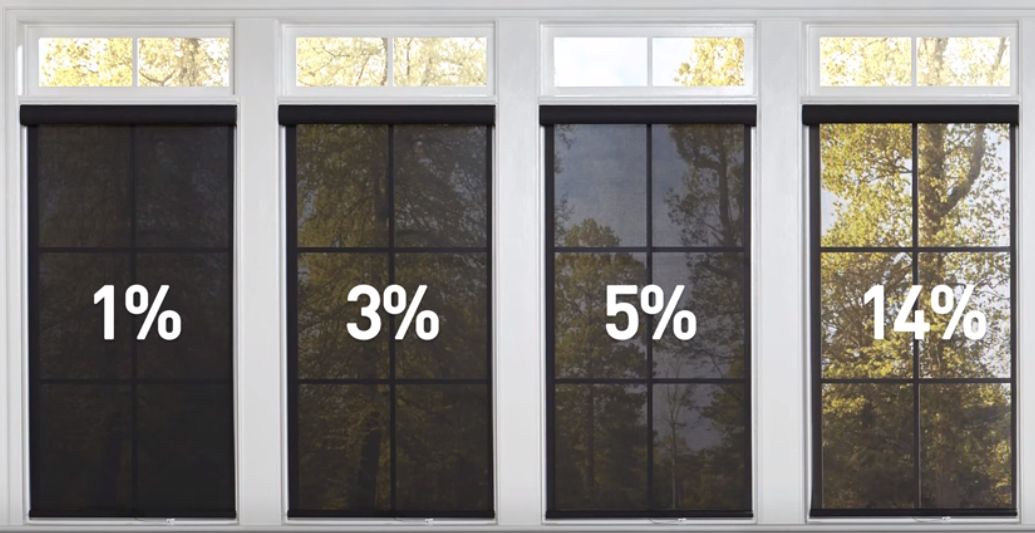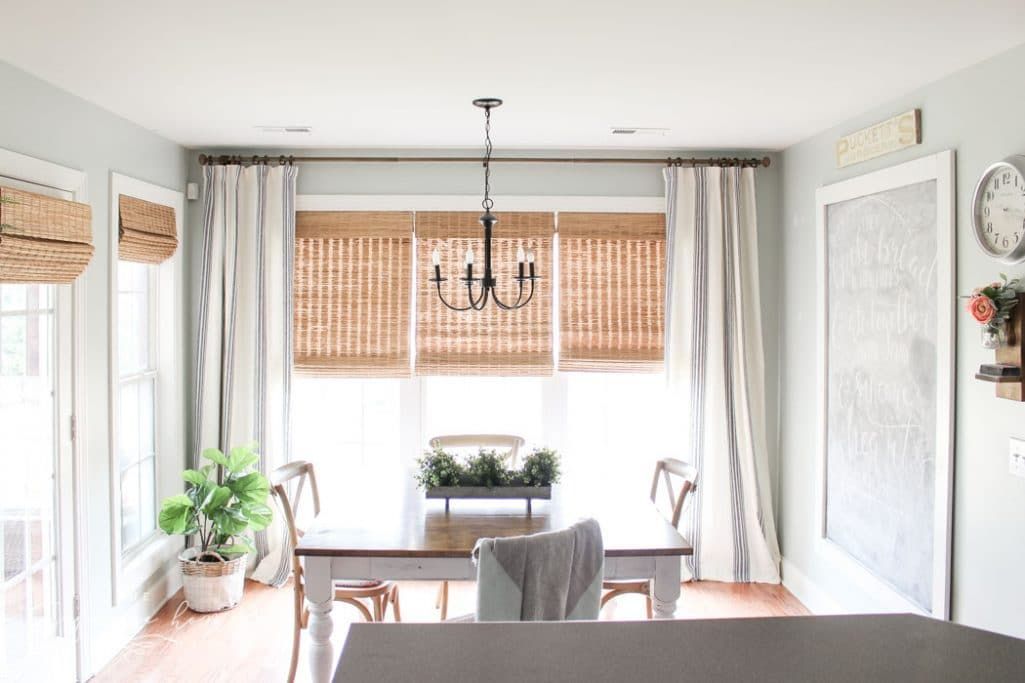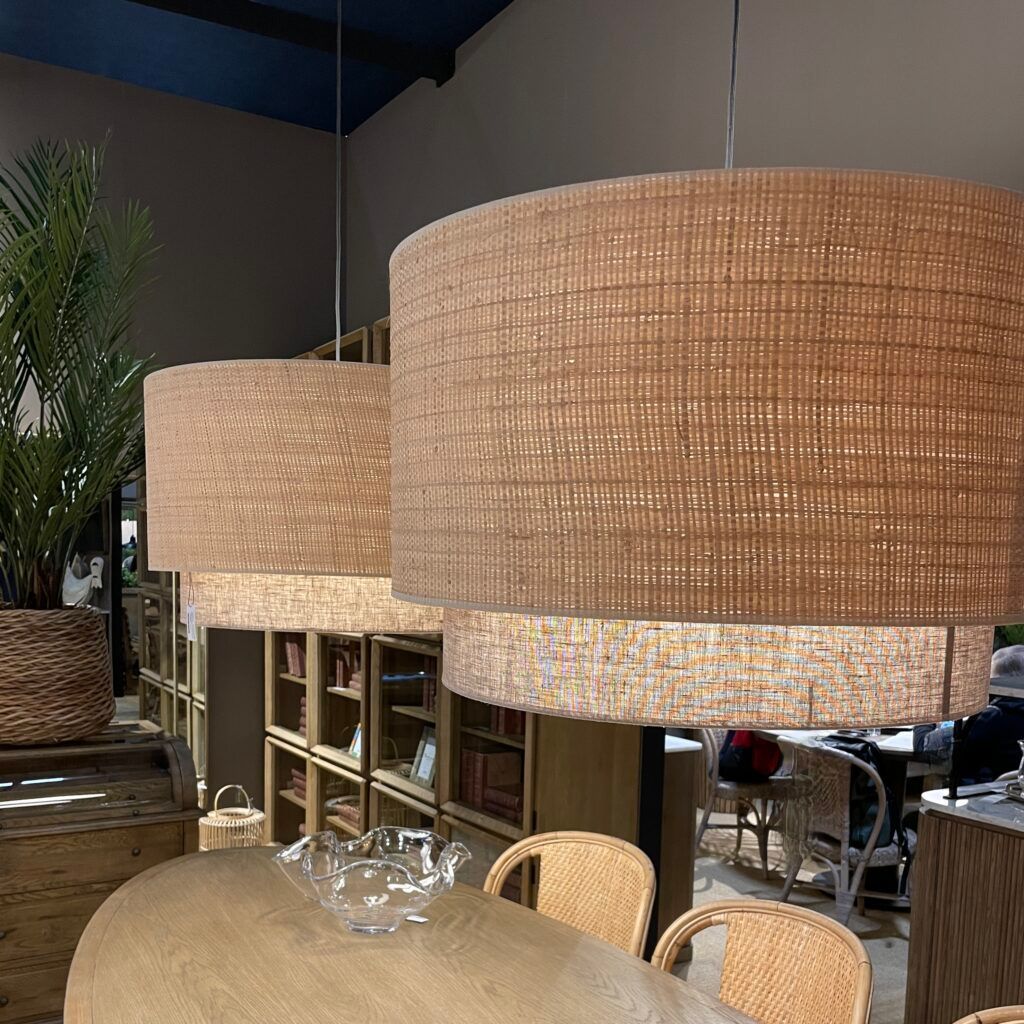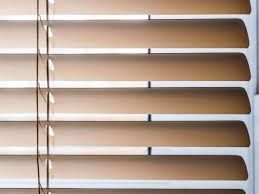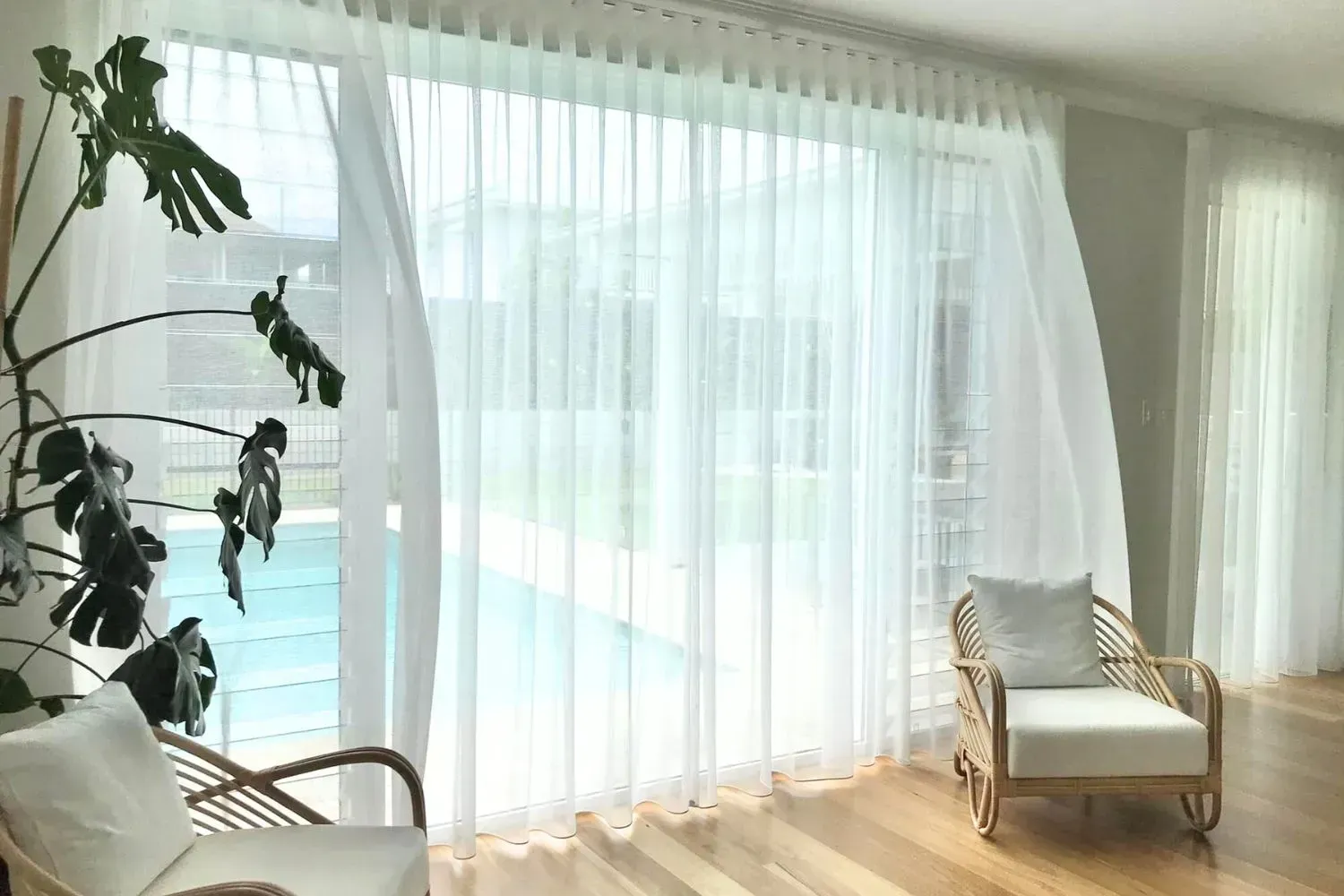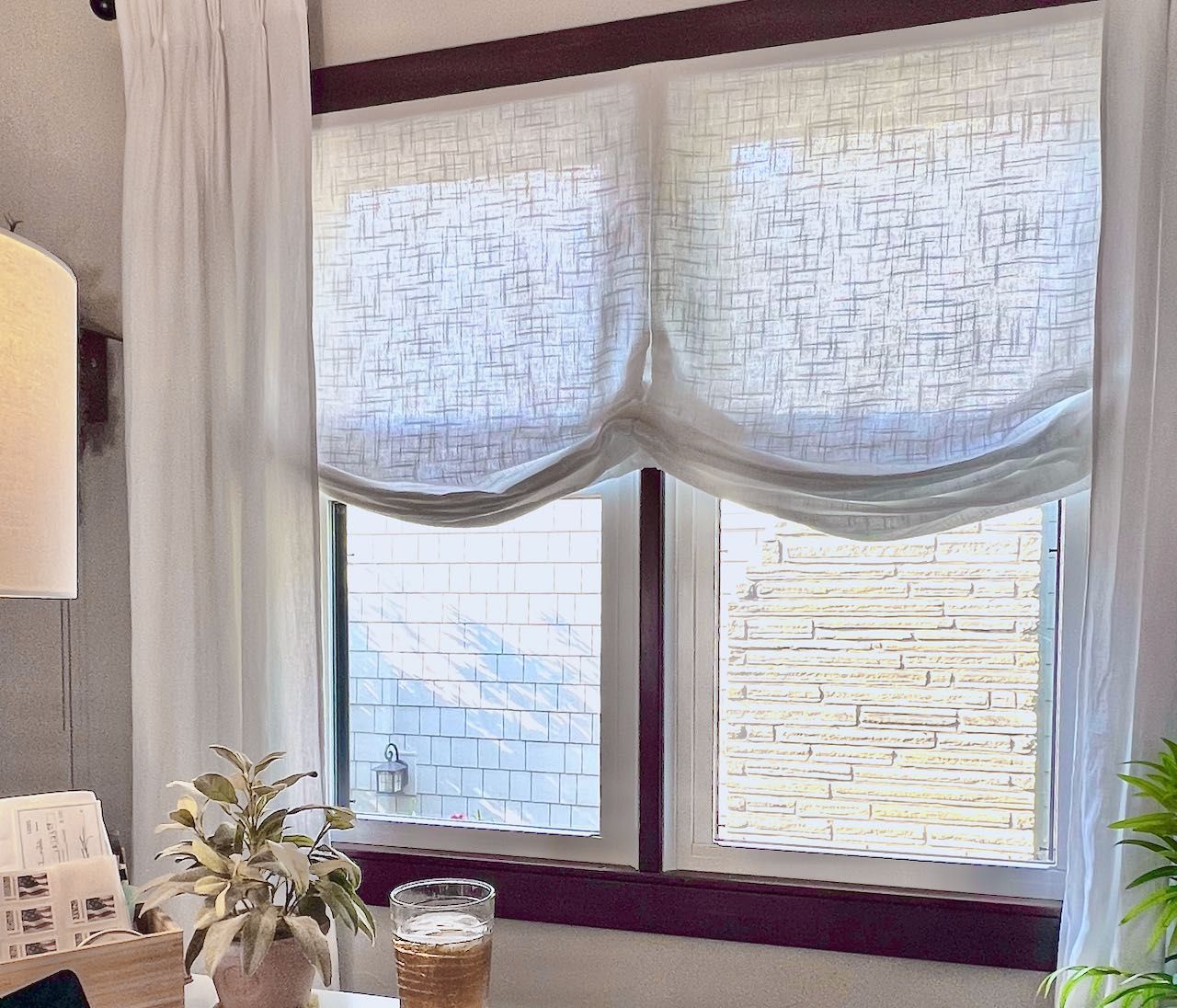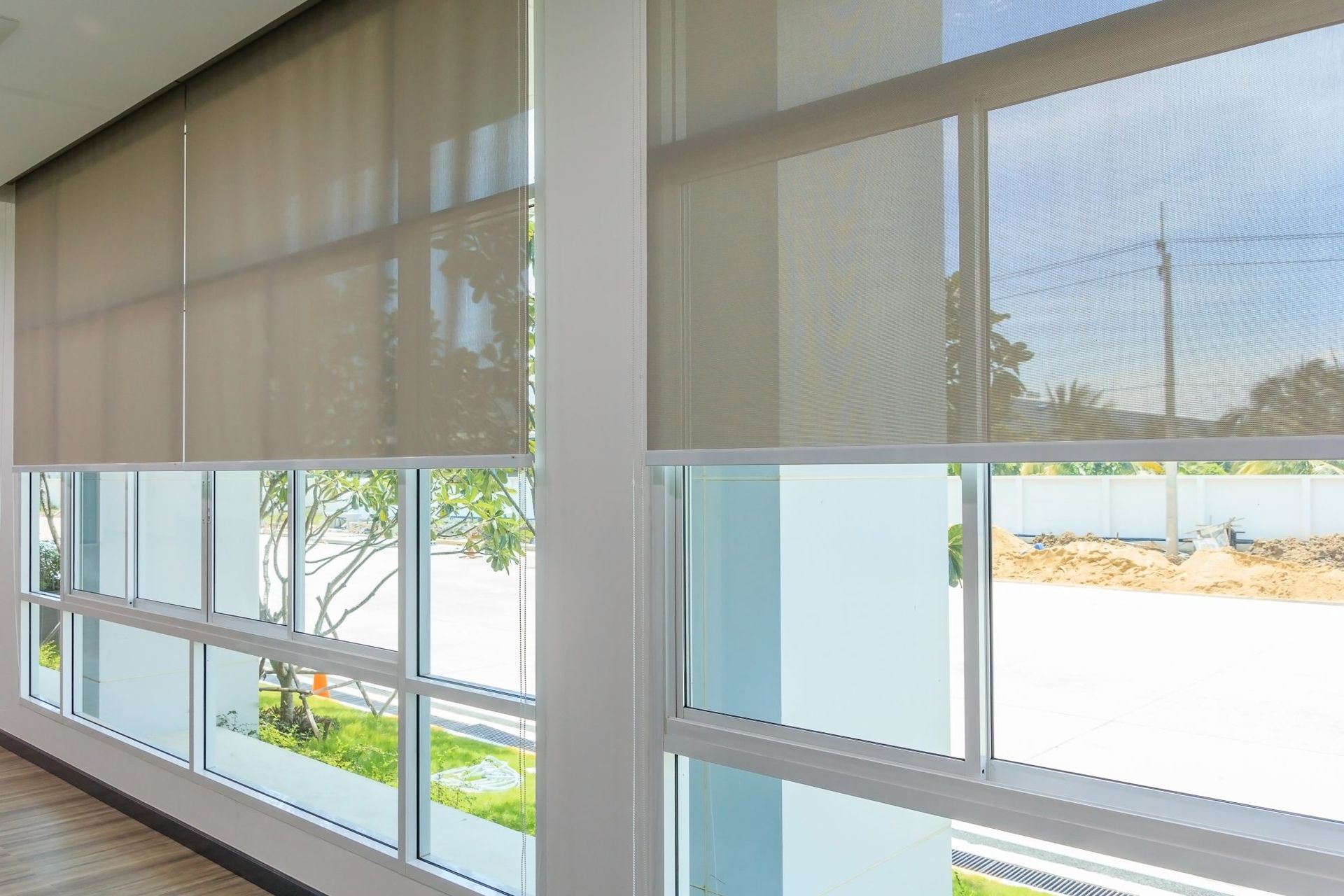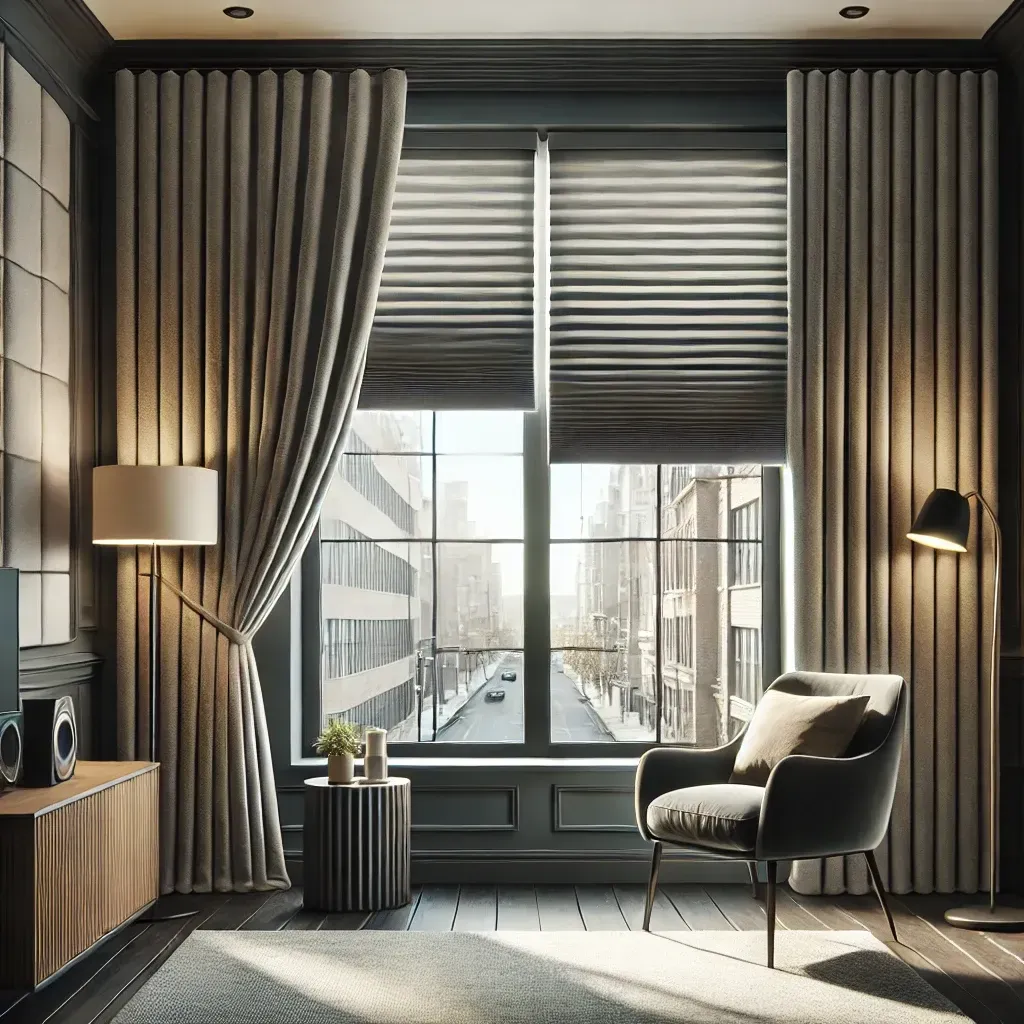How Much Do Solar Shades Block Heat? The Ultimate Guide to Energy Efficiency
TLDR;
Solar shades can block up to 80-90% of solar heat, depending on the fabric's openness factor, color, and material. They work by reflecting and absorbing sunlight before it enters your home, reducing indoor temperatures and lowering cooling costs.
Introduction
Keeping indoor spaces cool while managing energy costs is a common concern for homeowners and businesses. One increasingly popular solution is solar shades, designed to minimize heat gain and improve energy efficiency. But how effective are they really?
This guide explores how much solar shades block heat, the factors that influence their efficiency, and how they compare to other
window treatments. If you’re looking for a practical way to reduce indoor heat and save on energy bills, solar shades may be the solution.
What Are Solar Shades and How Do They Work?
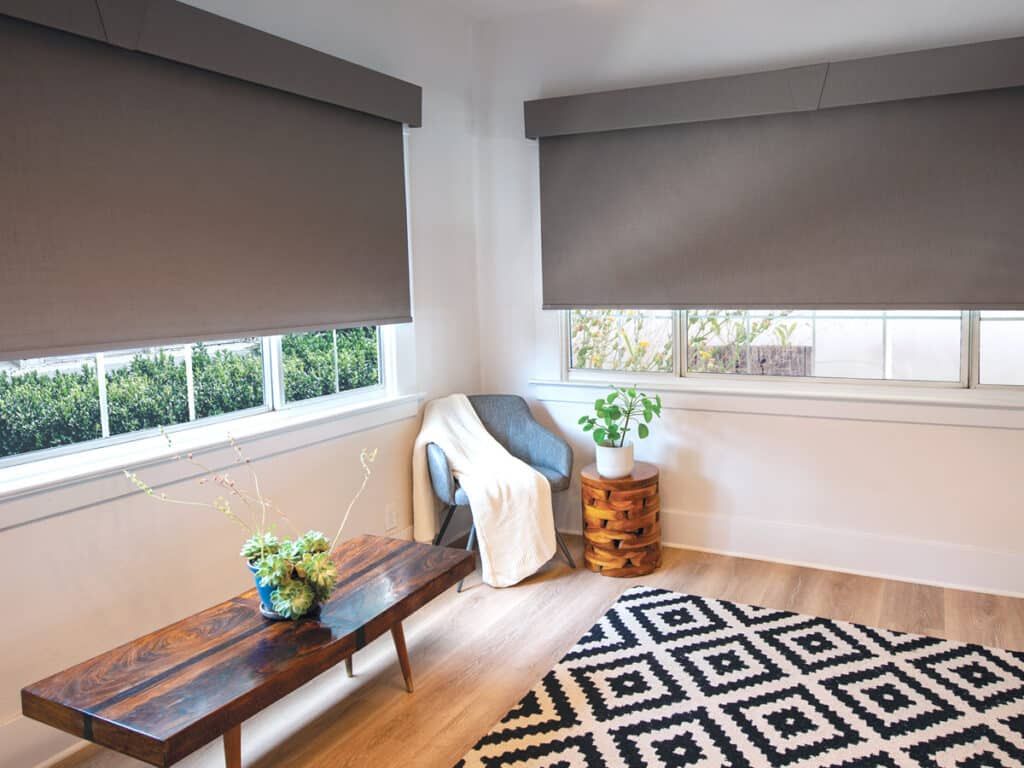
Definition and Functionality
Solar shades are a type of window treatment designed to control heat, glare, and UV exposure while maintaining an outside view. Unlike traditional blinds or blackout curtains, they use a specialized mesh fabric that filters out a portion of the sun’s energy.
How They Work
- Heat Reduction: Solar shades prevent solar heat gain by absorbing and reflecting sunlight before it enters the room.
- Glare Control: They reduce excessive brightness from the sun while allowing natural light to enter.
- UV Protection: Solar shades block harmful UV rays that can damage furniture and flooring.
How Much Heat Do Solar Shades Block?
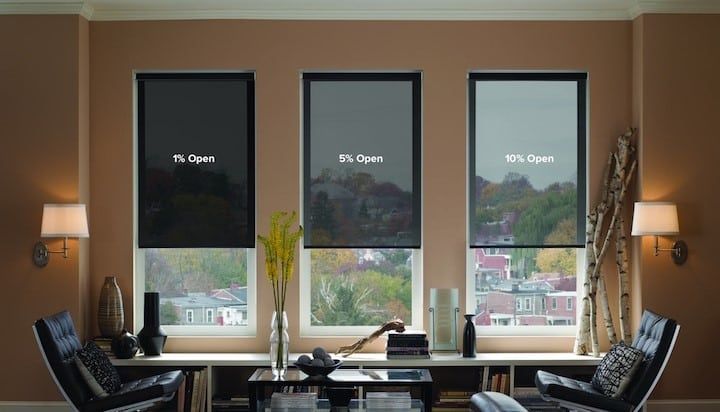
The heat-blocking capability of solar shades depends on multiple factors, including material, color, and openness factor.
Understanding Heat Absorption, Reflection, and Transmission
- Absorption: Some solar shades absorb heat, which can reduce the amount transferred indoors.
- Reflection: Lighter-colored solar shades reflect more sunlight, reducing heat gain.
- Transmission: The less light that passes through, the less heat enters the room.
The Role of Openness Factor
The solar shade percentage, also known as the openness factor, determines how much heat they block:
- 1-3% Openness: Blocks up to 90% of solar heat, providing maximum protection.
- 5-10% Openness: Blocks about 75-85% of heat while maintaining a clearer view.
- 10-14% Openness: Allows more light in, blocking around 60-70% of heat.
Performance Metrics: Research-Backed Data
Studies show that high-quality solar shades can reduce solar heat gain by up to 80-90%, depending on placement and material selection.
- Blackout shades: Block almost 100% of light and heat.
- Solar shades (1-3% openness): Reduce indoor temperatures by up to 15 degrees Fahrenheit on hot days.
- Comparison with window films: Solar shades can perform similarly or better, depending on the material.
Factors That Influence Solar Shade Effectiveness
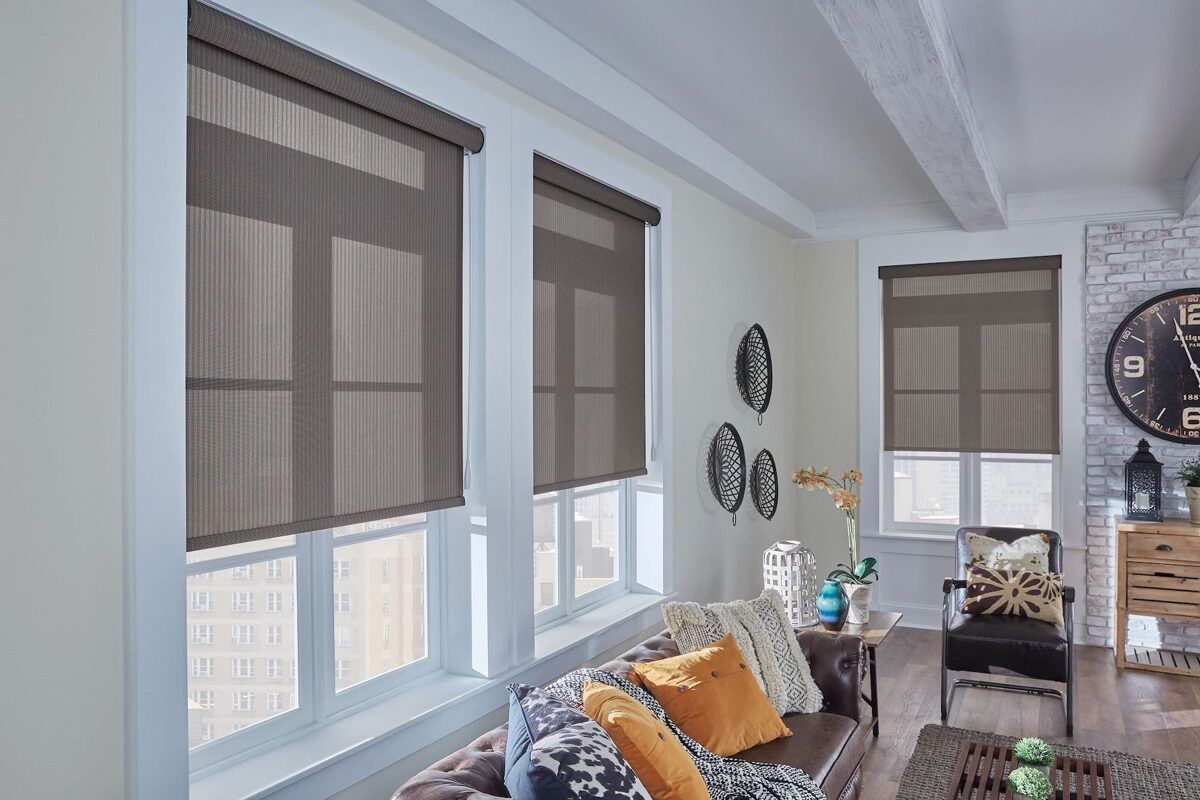
Material and Color Selection
- Dark vs. Light Shades:
- Dark-colored solar shades absorb more heat but offer better glare reduction.
- Light-colored shades reflect more heat and are more effective for cooling.
- Fabric Density: Denser fabrics provide better insulation.
Window Orientation and Installation
- South & West-Facing Windows: Benefit the most from solar shades since they receive the most sunlight.
- North & East-Facing Windows: Require less solar shading but can still benefit from glare reduction.
- Professional Installation: Ensures minimal gaps that allow heat leakage.
Additional Benefits Beyond Heat Reduction
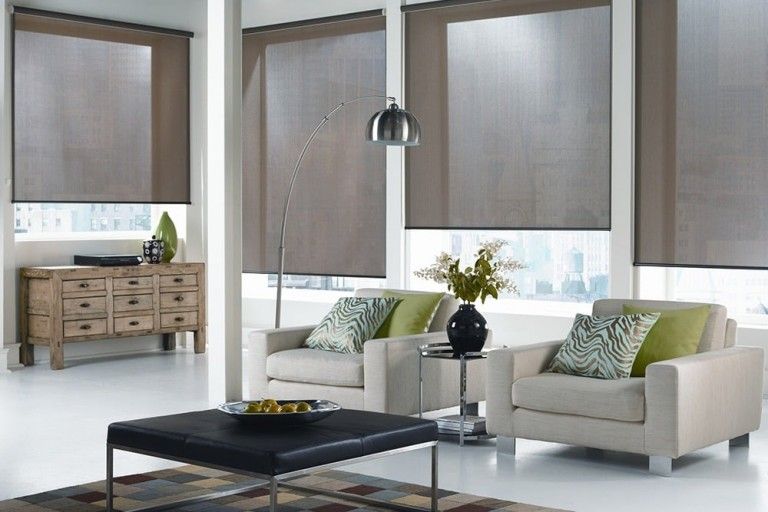
UV Protection
UV Protection Window Treatments like solar shades block up to 99% of UV rays, protecting furniture, flooring, and artwork from sun damage.
Energy Efficiency
By reducing the need for air conditioning, solar shades can lower energy bills by up to 30% during summer months.
Glare Reduction
Solar shades significantly reduce glare on computer and TV screens, improving visual comfort indoors.
Limitations and Considerations
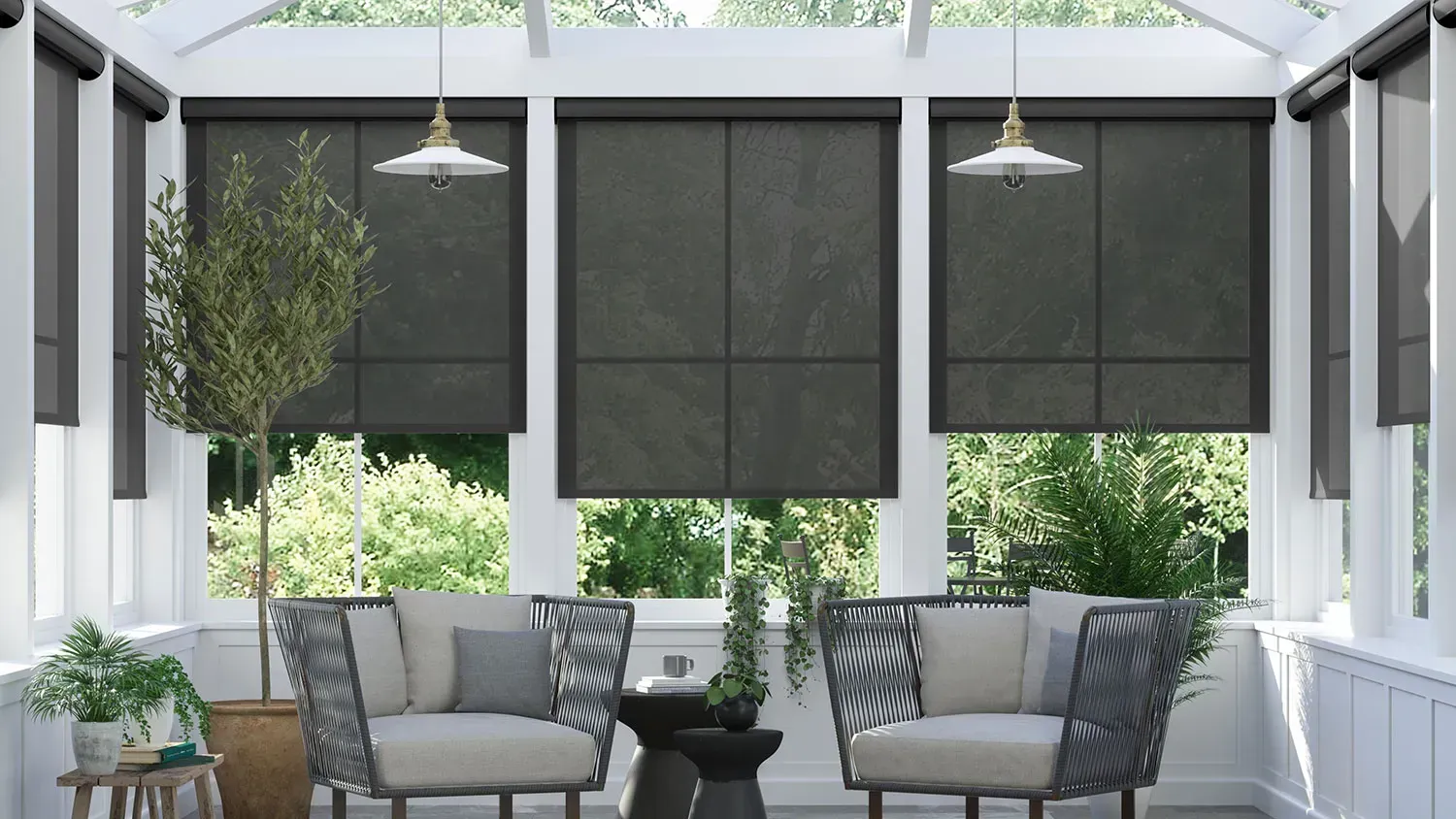
Privacy Issues
Solar shades provide daytime privacy, but at night, when indoor lights are on, visibility from outside increases.
Light Control
While solar shades filter sunlight, they don’t offer total darkness like blackout curtains.
Alternative Solutions
For maximum heat reduction, some homeowners opt for layered treatments, such as combining solar shades with blackout curtains.
Expert Opinion
According to energy efficiency specialists, solar shades are one of the most effective passive cooling solutions, offering both comfort and cost savings without high energy consumption.
Are Solar Shades Worth It?
If you're looking to reduce indoor heat, lower cooling costs, and protect your home from UV damage, solar shades are an excellent investment.
Love Is Blinds KY offers premium solar shades designed to maximize energy efficiency and comfort. Explore our collection today and start saving on energy bills.

